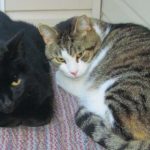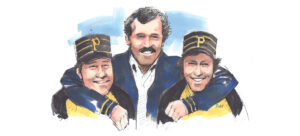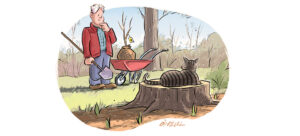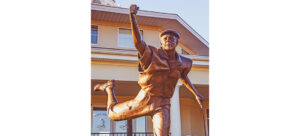
The Kiwi Roll ain’t hors d’oeuvres
By Bill Fields
Wrestling, the real kind, never appealed to me.
When we were forced to try it during physical education class at middle school, the mats could have used lots of Lysol. The moves were always a mystery. I didn’t know the difference between a Fireman’s Carry and a Double-Leg Takedown, and despite the best efforts of Coach Wynn, I never wanted to know. Other than when the dreaded pommel horse and parallel bars appeared, it was the only time I hated changing into gym clothes.
For every Dan Gable grappling for Olympic glory for the United States, there seemed to be a lot more fellows like my unfortunate friend in high school, who, being on the small side, was recruited as a Pinecrest sophomore to wrestle in the lightest class. But he often struggled to make weight, and running down the aisle of a hot bus wearing a plastic suit while spitting into a bucket en route to a match at Lumberton wasn’t my idea of a good time.
Wrestling, the other kind, was a different story.
I am not ashamed to admit that I loved the professional version, the faces and the heels of this wacky world as essential a part of my television entertainment when I was a young teenager in the early to mid-1970s as Mary Tyler Moore, Bob Newhart and re-runs of The Andy Griffith Show or Dragnet.
Mid-Atlantic Championship Wrestling was on WRAL-TV 5 at 11:30 on Saturday nights. The shows, taped in the Raleigh studio earlier in the week, were hosted by Bob Caudle, a weatherman at the station in his day job. “Hello, wrestling fans,” Caudle said at the start of every broadcast, the signal that it was time to settle in on the couch with a Coke and some potato chips.
With my mother gone to sleep and my policeman-father off to work the overnight shift, I had an hour with a familiar cast of characters: Johnny Weaver, Jerry Brisco, The Missouri Mauler, Argentina Apollo, Swede Hanson, Brute Bernard, Nelson Royal, Nikita Koloff, Krusher Karlson, Rip Hawk, Paul Jones, Bearcat Wright, and El Gaucho.
There was a former NFL player, Wahoo McDaniel; brother teams of Gene/Ole Anderson and George/Sandy Scott; wrestling giants Man Mountain Mike and Haystacks Calhoun, who weighed more than 600 pounds. One of my favorites was New Zealander Abe Jacobs, in his mid-30s and an undercard wrestler in the latter part of his career. Jacobs’ trademark hold was the “Kiwi Roll,” in which he would lock legs with his opponent, rolling around in a circle applying pressure to the ankle until the writhing foe gave up. Lots of guys performed the Suplex or Piledriver, or whip-sawed someone hard into a turnbuckle, but Jacobs’ signature submission move was unique, the Fosbury Flop without any following suit.
Regardless of who was wrestling on a given Saturday evening, the soundtrack was the same — the stomping of boots and slamming of bodies on the elevated canvas mat interrupted by shouts from a small audience in the studio bleachers, narrated by Caudle and a sidekick. I never mulled how much was fake or if everything was. Until NBC’s Saturday Night Live debuted in the fall of 1975, it was what I wanted to watch on television late on a weekend night.
Despite my loyalty, I never could persuade my father to write in for tickets to a Mid-Atlantic Championship Wrestling taping at Channel 5. We never went to the Greensboro Coliseum or Dorton Arena to see the spectacle in person either. Once, though, pro wrestling did come to the Armory on Morganton Road. Tickets were cheap, and Dad agreed to take me.
We sat in metal folding chairs, the variety of which villain manager Homer O’Dell used to surprise-whack a rival on TV as Caudle was doing an interview. If Jacobs was there and Kiwi-Rolled anyone, I don’t remember. It was loud, with plenty of yelling.
My lasting memory of the matches is of a town tough a handful of years older than me who jumped on the ring apron, agitated and ready to rassle. He deserved to be sat on by Man Mountain Mike but instead was restrained and led away, screaming, told, no doubt, that he was not part of the show. PS
Southern Pines native Bill Fields, who writes about golf and other things, moved North in 1986 but hasn’t lost his accent.





